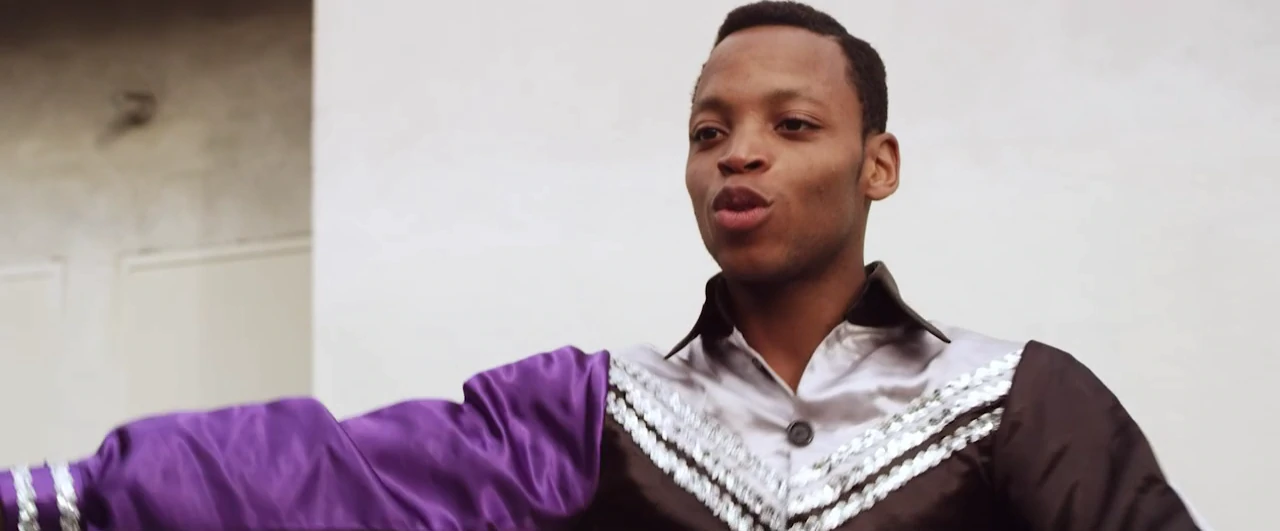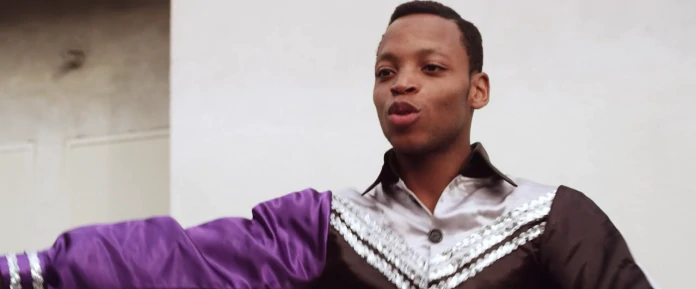[ad_1]
This June, the world celebrates Pride amidst a global uprising against police brutality toward Black Americans. Pride month itself commemorates a similar uprising as it recalls the June 28th, 1969 rebellion at the Stonewall Inn in New York City, where trans women and femmes of color fought back against a routine yet unjust police raid.
This interwoven intersectionality of the Black LGBTQIA communities is on display now more than ever, and it is also reflected in the 2020 independent short film LiME, written and directed by Donta Storey.
Storey is a non-binary emerging actor, writer, producer and director. Their film, LiME, is a snapshot of a day in the life of a young queer Black boy named DeShawn (Urian Ross). With encouragement from his mother (Alanna Barton), DeShawn joyously and unapologetically auditions for the community majorettes team despite intimidation from his Black cisgendered peers.
DeShawn’s story of triumph and support is loosely based on Storey’s own experience as a genderqueer person growing up in the predominantly Black community of Compton, California.
In discovering their queerness, Storey tells theGrio, “When I was a kid, I always felt a little off, if you will. I knew that there was something that made me different from other boys and even other girls. And then, as I grew up and started to date and experiment, I started to realize I don’t know if I’m into just one thing or belong in just one category. I’ve always felt this way, I just didn’t know what it was called until a few years ago, honestly.”
RELATED: New short film ‘Tender’ explores what happens after two women have one night stand
In addition to their gender identity, Storey affirms “I’m a Black person first though. When police see you, they don’t see queer they see Black, you know? I have been profiled. I’ve been falsely arrested. Growing up in LA, I doubt that you’ll meet many Black men or women who haven’t had an awful run-in with the police.”
But despite these challenges, Storey acknowledges that, similar to DeShawn, they grew up with the love and support of community, especially Black women.
“Black women have saved my life over and over and over again,” Storey asserts. “I am indebted to every Black woman that I’ve ever met in my life — family, friends — they’ve been my protectors. And I wanted to make sure that we addressed that in the film.”
One of the ways in which this support system is reflected within the film is through a stirring monologue delivered by Barton’s brilliant portrayal of DeShawn’s mother detailing the significance of sweet limes, a metaphor from which the film garners its title.
“When I was a kid,” says Storey, “they would say ‘Oh, you got some sugar in your tank. He’s sweet, or she’s sweet.’ And so I wanted to flip that on its head. What’s so wrong with being a little sweet or a little different? It was used as a derogatory term, but I wanted to breathe love and light and support into it.”
RELATED: 5 reasons to watch Maame-Yaa Aforo’s short film ‘Brown Paper Pageant’
Sweet limes are native to Eurasia and North Africa, and when asked about the symbolism of the rare sweet lime and its ties to Africa, Storey tells theGrio, “I thought it was a great way to represent my Blackness and also my queerness.”
“LiME is a film about overcoming adversity,” they adds. “I hope that young Black and Brown kids who are queer – or maybe not – find some type of inspiration in that. Life is going to be hard, but that doesn’t mean that you give up. When I first started writing, it wasn’t necessarily the film that I thought I was going to make, but now I know that it was necessary.”
LiME is available now for streaming on Amazon Prime.
[ad_2]
Source link


